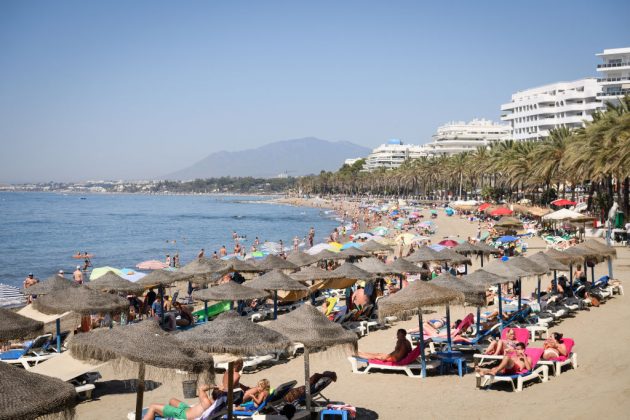Thomas Cook: How did it end up like this?

Companies in the travel industry have endured a turbulent year – and none more than Thomas Cook.
Read more: Thomas Cook shares plunge to record low as investors face being wiped out
The embattled firm this morning said it is closing in on a bailout deal which would see Chinese firm Fosun give it £750m for a controlling stake in its core business.
It looks like they’ll need it: the firm reported a £1.5bn half-year loss in May, and is struggling with a £1.4bn debt pile.
But shares fell to a historic low of 6.25p on the news, having been valued at 104p this time last year. This is in part because investors’ stake in the firm would be severely diluted by any deal with Fosun.
As analysts speculate the company is “desperate for cash,” City A.M. asks: how did it get to this stage?
The weather
Thomas Cook’s recent problems started last summer, when Brits enjoyed a bumper heatwave. For the travel operator, this was bad news, as fewer people looked to go abroad.
CMC Markets analyst David Madden said: “British holidaymakers usually take off to mainland Europe to soak up the sunshine, but the continental climate Britain enjoyed over the summer prompted them to stay at home.
“Adding to the feel good factor of the summer was England’s performance at the World Cup, and football fans found themselves spending more money at home than abroad.”
Chief executive Peter Fankhauser said in November: “After a good start to the [2018] year, we experienced a larger-than-anticipated decline in gross margin following the prolonged period of hot weather in our key summer trading period.”
Between May and October 2018, shares fell from 136.1p to 40.6p, a 70 per cent drop.
Brexit
The firm has also blamed the prolonged period of Brexit uncertainty for impacting customer’s holiday plans.
Thomas Cook said in May UK customers, which make up its core customer base, were putting off their summer holidays because of the political deadlock.
“Political uncertainty related to Brexit over recent months has led to softer demand for summer holidays across the industry,” Fankhauser said in May.
CMC Markets analyst Michael Hewson added: “The holiday retail sector has struggled in the first half of this year, though it hasn’t been helped by the uncertainty over Brexit which prompted most consumers to delay many overseas holiday commitments.”

Rising costs
The company’s airline division has also tussled with rising fuel costs in recent years – and it is not the only one. Lufthansa reported a €336m (£290.4m) quarterly loss in April for the same reason, while a number of airlines have even gone bust.
Monarch, Air Berlin, Flybmi and most recently Iceland’s Wow Air have all gone insolvent over the last few years.
Fankhauser said in May: “Higher fuel and hotel costs [are] creating further headwinds to our progress”.
Oil costs have slumped in 2019, which “should take some of the pressure off the travel industry,” according to CMC Markets analyst David Madden. “But it might transpire that some companies have hedged their fuel needs when prices were much higher.”
Failed airline sale
Earlier this year, the firm tried to sell off its airline, with Lufthansa, Virgin Atlantic and Aviation investor Indigo Partners all interested parties.
In May, it announced the potential deal was progressing well, despite Citigroup advising shareholders to sell out of the firm and setting a 0p target price, claiming the shares were virtually worthless.
But this appears to have been put on the backburner while management tries to hurry through the deal with Fosun. This morning, Fankhauser said it was “too early to speculate what will happen with the airline”.
Read more: Agencies slash Thomas Cook’s credit rating
However, he refused to rule out a sale at a later date.
AJ Bell investment director Russ Mould said: “Times are tough for travel operators at the moment and the problem for Thomas Cook is that its ability to navigate a difficult market is hindered by its unwieldy borrowings. Little wonder the company is in a tailspin”